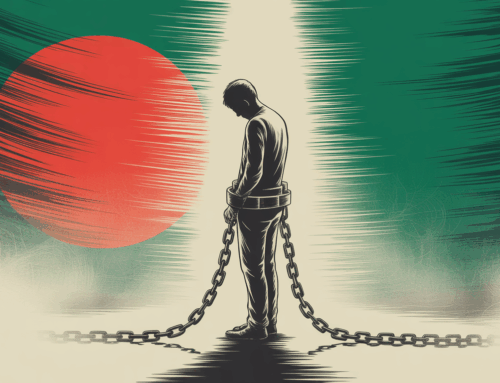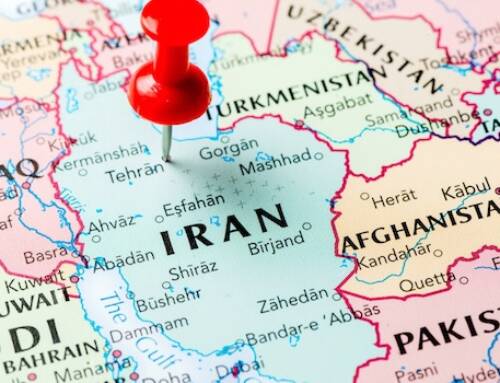Referendum as a perfidious war game
Referendum on amending the Constitution of the Republic of Belarus. Early voting in the referendum to amend the Constitution of the Republic of Belarus started on February 22 and will end on February 27, the main voting day.
The new constitution. What will change?
Should the results of this referendum lead to an amendment to the constitution of the Republic of Belarus, this would be the fourth amendment during Lukashenka’s term in office. Previously there were changes in 1994, 1996 and 2004. As part of the referendum in 2022, only one question will be voted on: “Do you accept the amendments to the Constitution of the Republic of Belarus?”. The two possible answers are: for or against.
The referendum is considered valid if more than half of the citizens of Belarus who are entitled to vote take part in it. In the new draft constitution, 87 out of 140 articles were changed and 11 new articles were added.
Here are some of the changes:
– Special security guarantees for the former President;
– Introduction of the section on the All-Belarusian People’s Assembly (APA).
This is to become the highest representative body of people’s power in Belarus. The draft provides that the president can be removed from office by the All-Belarusian People’s Assembly in the event of systematic or gross violations of the constitution, high treason or other serious crimes;
Former Belarusian diplomat Pavel Matsukevich believes that the new wording of the country’s Basic Law “is aimed not at developing the constitutional order, but at protecting Alyaksandr Lukashenka”.
To this end, the new constitution provides for several mechanisms. The first is that the former president can become a member of the Council of the Republic for life, guaranteeing his immunity until his death. Also, the new version of the country’s Basic Law provides that the president who no longer exercises his powers does not can be held liable for acts committed in office.
– Belarus gives up its neutrality and plans for nuclear energy are to be developed.
Peculiarities of this referendum
Human rights activists point out that the referendum in 2022 will be held under very specific conditions. The evening before, the Belarusian Interior Minister Ivan Kubrakov said that the officials of the Interior Ministry will be put on increased alert, and that the police forces and volunteers will be deployed more often in the polling stations. All polling stations in educational institutions will be equipped with video surveillance. “This allows us to monitor the situation online both at the entrance to the building and in the surrounding area,” said the interior minister.
The main peculiarity of the preparations for the current referendum was the fact that the Belarusian authorities decided to classify the electoral commissions that will count the votes.
So far, during all election campaigns, it has been possible to find out who sits on the commissions in the district newspapers and on the websites of the local executive committees; however, for the 2022 referendum it was decided not to publish this information. As it turned out, it was the Central Election Commission of Belarus that took the initiative not to publish information about the members of the constituency commissions, although this is required by the election law.
In an interview with state television, Igor Karpenko, head of the Central Election Commission, explained this by saying that Belarus has passed a law on personal data protection. According to Karpenko, this law has already “dictated certain requirements for amendments and additions to the electoral legislation,” which just has not yet been adapted accordingly.
The drafting of the new constitution took place under conditions of repression, with unprecedented use of violence and the imposition of informal martial law. As of February 25, 1078 people became recognized political prisoners in Belarus: bloggers and journalists, businessmen, activists of the headquarters of presidential candidates and participants in peaceful protests. There are still a huge number of people in prisons who do not have the official status of a political prisoner, but are imprisoned for political reasons. Several thousand people were expelled from Belarus or forced to flee the repressions of the Belarusian regime by fleeing to neighboring countries. All these people are deprived of the right to vote and will not be able to vote in a referendum to amend the constitution. The Belarusian diasporas abroad, who have been living abroad for a long time, will also not be able to vote. On February 2, Foreign Ministry spokesman Anatoly Glaz said that during the referendum on amendments and additions to the Constitution, there are no plans to open polling stations abroad. They are invited to vote at the place of registration in Belarus, or at the place of last residence. But taking into account the flywheel of repressions operating at full speed, it is unlikely that Belarusians abroad will go to vote in Belarus.
Anatoly Glaz also believes that “all this in no way interferes with the constitutional right of the citizens of Belarus to take part in the upcoming referendum”, so the Foreign Ministry noted. Traditionally, the share of those voting abroad is less than 1%.
But as the presidential elections in the Republic of Belarus in 2020 showed, of course, the share of those voting abroad is much higher than 1%.
International surveillance
131 international observers will observe the referendum. Of these, 116 represent the Mission of Observers from the CIS, including 36 sent by the CIS Inter-Parliamentary Assembly, also 12 observers are accredited from the Central Electoral Bodies of Russia, Kazakhstan, Armenia, Kyrgyzstan, Tajikistan, Azerbaijan, Uzbekistan, 3 – from the SCO (Shanghai Cooperation Organisation) It became known that the Central Election Commission accredited 29 international observers.26 observers joined the Mission of Observers from the CIS, and 1 from the SCO.The referendum will also be observed by 2 people from the CSTO (Collective SecurityTreaty Organisation) Parliamentary Assembly.
In turn, the European Union did not plan to send its observers to the referendum. However, it was previously stated that about 30 short-term observers should come from the EU countries. The authorities of the republic refused to send invitations to the OSCE/ODIHR (OSCE Office for Democratic Institutions and Human Rights) to observe the referendum.






